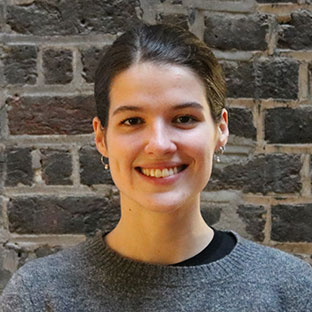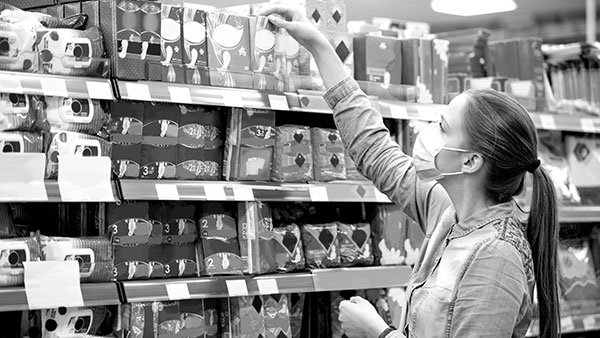The essence of this year's IWD mission - #EachForEqual - is reflected in the philosophy of the RSA Fellowship as a whole.
The upcoming International Women’s Day on March 8 feels particularly pertinent in the wake of Harvey Weinstein’s trial and recent guilty verdict.
Weinstein’s abuse was coercive and predatory, but by no means unique, and thus his conviction represents a step towards ending widespread tolerance of such abuse. It also represents progress for women across the globe who feel that their suffering has been continually condoned by society. Furthermore, Weinstein’s downfall is an affirmation of the power of a movement and thus, many will embark on their International Women’s Day campaigns in the spirit of celebration, with the momentum of this victory arming them with the knowledge that their individual and collective action can evolve into tangible change.
Yet this knowledge will be coupled with an understanding of the challenge that lies ahead.
The nature of this challenge was outlined by the World Economic Forum in their Global Gender Gap Report 2020, released in December of last year. Although it concludes that the global situation with regards to gender parity has improved - 101 of the 149 countries covered this year and last have seen improvement - it will take some 95 years to close the global gender gap in political representation and a jaw-dropping 257 years before gender parity will be achieved in terms of economic participation and opportunity at the current rate of improvement. Again, it appears that we will commence International Women’s Day aware of both a cause for celebration and the need for accelerated action.
The theme of this year’s IWD is #EachforEqual, recognising that we are all individuals responsible for our own thoughts and actions, and thus by making decisions every day that favour equality in our own lives, we can cause a collective shift to a gender equal world. This theme, though noble, is not without fault. Inevitably in an unequal society, there is variation in people’s capacity to take this action daily, and thus there should be different expectations placed on people based on differential access to power. It is not unreasonable to expect those with more resources to take more of the load.
With this consideration in mind, #EachforEqual and its encouragement of individuals to use their autonomy to contribute towards collective development is hugely important, and is constantly reflected in the work of the RSA Fellows. Afsaneh Parvizi-Wayne, Neelam Keshwala, and Salma Zulfiqar, for example, are all committed to this pursuit. Afsaneh Parvizi-Wayne is the founder of Freda, a period subscription service that is committed to changing the way the world looks at periods and period products. Affi recognises that the taboo and stigma surrounding menstruation can cause real damage, particularly when it causes the UN and relief organisations to overlook period products in hygiene kits for refugee camps. Not only does Affi and her company provide period products that are biodegradable and contain no chemicals, they are also committed to advocating for universal access to period care products and girls’ rights to education. In addition, Affi is now looking to address another taboo of women’s health, the menopause. She is developing Vera, an AI-driven app to support women, particularly in the workplace, to manage their menopause.
Neelam Keshwala is the founder of DON’T SLEEP ON US, a space for black, Asian, and minority ethnic changemakers to support and learn from each other. She has reinvigorated networking, ensuring it is an experience that is inspiring, stimulating, and fun. In addition, she works full time for Chorus as a Campaigns Assistant, working with activists with lived experiences to create impactful campaigns, and previously has worked for charities such as Girls Not Brides and Hope and Homes for Children.
Salma Zulfiqar is an award-winning Artist and Human Rights Activist whose work focuses on migration, empowering women, and peace building in communities. She is responsible for the conception of The Migration Blanket, an artwork focused on empowering refugee and migrant women and exploring their struggles, hopes, and dreams. Salma is participating in one of the RSA International Women’s Day events – visit our website to learn more.
Furthermore, the essence of this IWD mission is reflected in the philosophy of the RSA Fellowship as a whole. The Fellowship is a global community of proactive problem-solvers, each fellow taking action in her own life to advance the mission of the RSA, and to positively impact society.
If you want to extend your commitment to the mission of International Women’s Day and #EachforEqual beyond 8th March, consider joining the RSA Fellowship and the effort to resolve the challenges of our time.
Related articles
-
Period poverty in the pandemic
Kirby Fullerton
For International Women’s Day 2021 Kirby Fullerton spotlights three RSA Fellows working to alleviate period poverty in the UK and beyond.
-
Equal, Together: Reflections on International Women’s Day 2020
Shauna Aaron
Women need to do more, together, by supporting each other in the workplace.
-
Becoming Visible- Because we are Changed when We are Seen and Heard
Sally Bonnie FRSA
Sally Bonnie FRSA, Founder of Inspire Women Oldham and Young Women Changemakers, reflects on the recent 'Visibility Journey' of the women she champions and the importance of a new power approach in tackling some of societies biggest problems. Following the International Elimination of Violence against Women day this week, join Sally and Young Women Changemakers for an interactive event at The Steps on 2nd December.



Be the first to write a comment
Comments
Please login to post a comment or reply
Don't have an account? Click here to register.